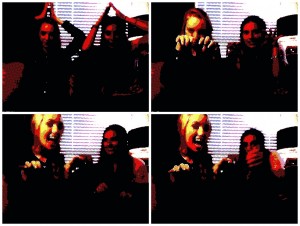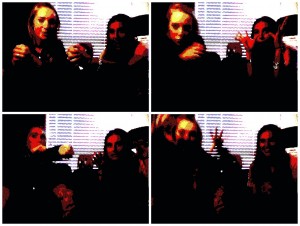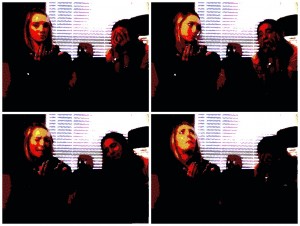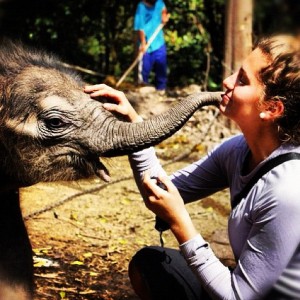Long, long ago a terrible tragedy came upon the earth as we know it today. This tragedy, so great, proves inescapable from any man, woman, child, mutant, animal, or even the seemingly harmless baby. What is this you ask? Well my friends, this epic tragedy is … EVIL.
Let’s begin at, well, the beginning. Indeed a great place to start. In a cafe not far from where you are sitting right at this very minute, two harrowingly hideous witches met to discuss, no, rather dispute, who could create the absolutely scariest thing ever. Not just the scariest thing they had seen, but legitimately the scariest thing in the WHOLE world. (Samantha, do not take the witch description personally, it is of course simply a creative element to the story).
These witches, so scary that they were, grumbled and garbled over who was scarier while sipping their $5 non-fat triple foam extra hot lattes. Gillian, being naturally too competitive, decided she simply had to win. She absolutely had to create the scariest, most horrifying thing ever known to mankind. Gillian allowed Samantha to brew and boil her “scary” mixes of witchcraft while she sat back and watched the spectacle unfold before her.
Just you wait, Gillian thought. I’ve got this. “Listen and learn Madame Samantha. I have something so terrifyingly traitorous that you will never be able to forget it. EVER.” Gillian went on to tell Samantha a story. Oh wow, you say, a story. So not scary. Your average story may not be so scary, but this story is different. This is a story of horrendous measures. This story is of insane credit card dept due to over spending at the most fabulous clothing stores in the world, of the pressures of having to always have the latest iPhone, of having to get spray tans in the midst of the cold winter months, despite having no money in one’s bank account.
To those who are reading this and quite likely rolling your eyes, or staring at the screen with utter confusion, I urge you to read on.
The moment this story of treachery crossed Gillian’s lips, Samantha gasped in desperation for the story to stop. She did not want to hear anymore! Enough is enough she cried!
Gillian slammed down her empty non-recyclable coffee cup and jumped up from the table, cackling an evil witch cackle as she ran out of the cafe. Little did Samantha know, as soon as the story of evil was expelled from Gillian’s mind it could NEVER be taken back. Ever. This tale of evil would forever roam to the very edges of the world, grasping the innocent minds of everyone it crossed.
The end. (The witches lived no so happily ever after, constantly in shopping debt).
I would assume that most of you are again staring at your computer screen shaking your head at the fact that I made the story of evil entering the world about shopping and expensive lattes. For me, these are my evils as I have a credit card bill that never seems to get any smaller. In fact, it is growing at an impressively fast rate. I may not have mastered the art of storytelling, but I do not see that as a negative point. It was both humorous and eye opening to exchange stories with the wonderful Samantha Ellis and personalize them with our own points and ideas. We may not have succeeded in producing the scariest witches ever, but I must say that our cartoon animations are pretty darn good.
Thank you for reading!
Gillian





